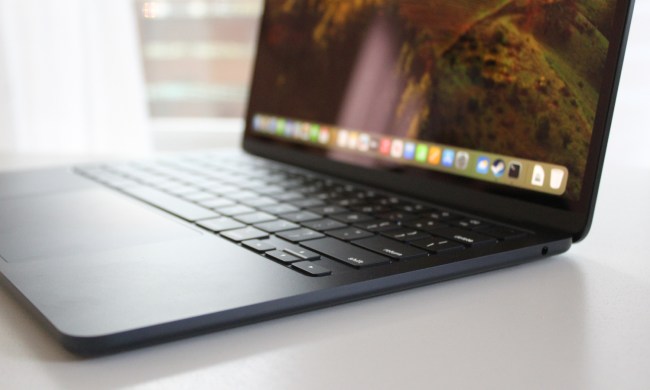
Apple’s custom A-series chips, which are found on the company’s iPhones and iPads, could be making their way into the Mac in a few years. Respected Apple analyst Ming-Chi Kuo echoed an earlier Bloomberg report in predicting that Apple could abandon Intel processors and its “Intel Inside” branding on the current crop of MacOS computers in favor of custom silicon by as early as 2020 or 2021. Apple’s move to supplant processors using Intel’s x86 architecture with ARM-based designs would mirror Microsoft’s partnership with Qualcomm in delivering always-connected PCs that run Windows 10.
Yet, despite the move to custom Apple silicon, not all members of the Mac family will be making the transition, at least initially. It’s believed that Apple will begin the migration to its in-house chip starting with laptops, like the MacBook, according to a report on AppleInsider, as it may take some time before Apple’s ARM-based processors could scale up to match the performance of Intel’s chipsets on high-powered desktops, like the iMac, iMac Pro, and Mac Pro.
But by creating its own processors for Macs, Apple would own complete control of the hardware and software, similar to its mobile strategy on phones and tablets. This, in theory, could allow Apple to further optimize MacOS to get even more performance without requiring additional hardware overhead. As an example, iPhone models generally match or beat the performance of competing high-end Android smartphones despite coming with less RAM and a smaller battery.
Apple could also benefit by not having to rely on Intel’s launch schedule. Additionally, it would also free up the Mac-maker from being affected by chip shortages or supply constraints on Intel’s part; The Oregonian reported that Intel is looking at splitting up its manufacturing into three separate groups after delays with launching 10nm chips. Kuo believes that Apple’s current chip manufacturer, Taiwan Semiconductor Manufacturing Company, or TSMC, will continue as the sole supplier of Apple’s silicon when it launches.
In addition to making ARM-based processors that would power MacOS, Kuo reported that TSMC will also help Apple make chips to power the Apple Car. Like the A-series processors for phones and Macs, the chips for Apple Car Advanced Driver Assistance Systems would use a custom design and could launch by 2023 or 2025. Kuo speculated that the silicon would deliver either Level 4 highly autonomous or Level 5 fully autonomous driving capabilities utilizing a miniaturized 3nm or 5nm design process. Ahead of Kuo’s report, Apple rival Samsung also announced that it is entering the automotive space with its custom ARM-based Exynos Auto processors.


